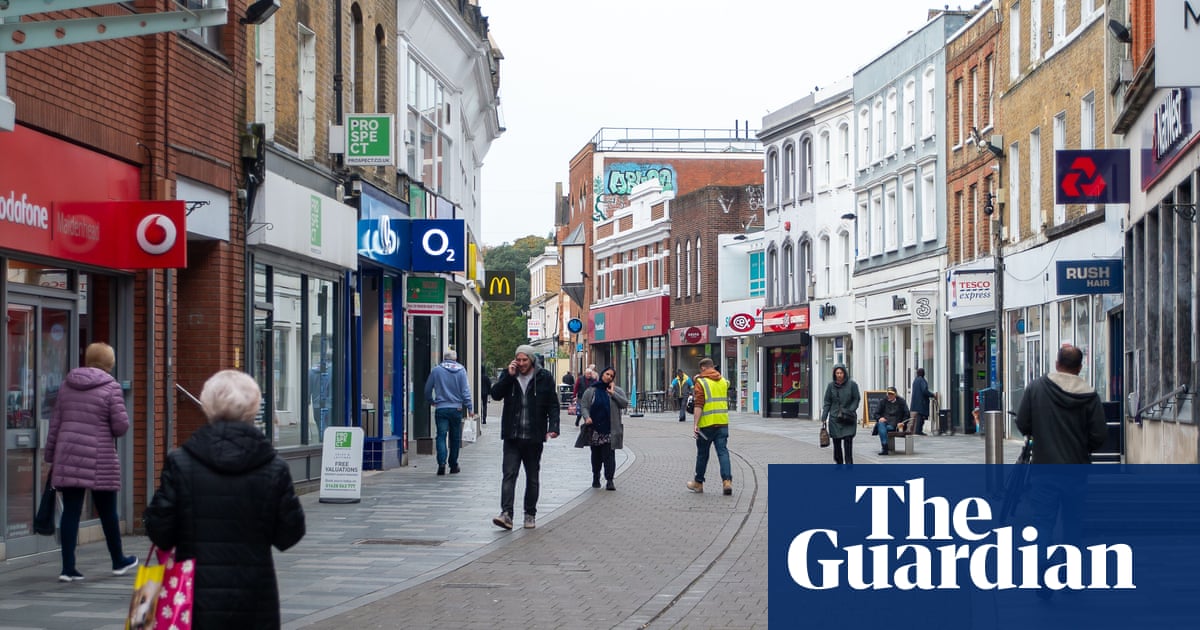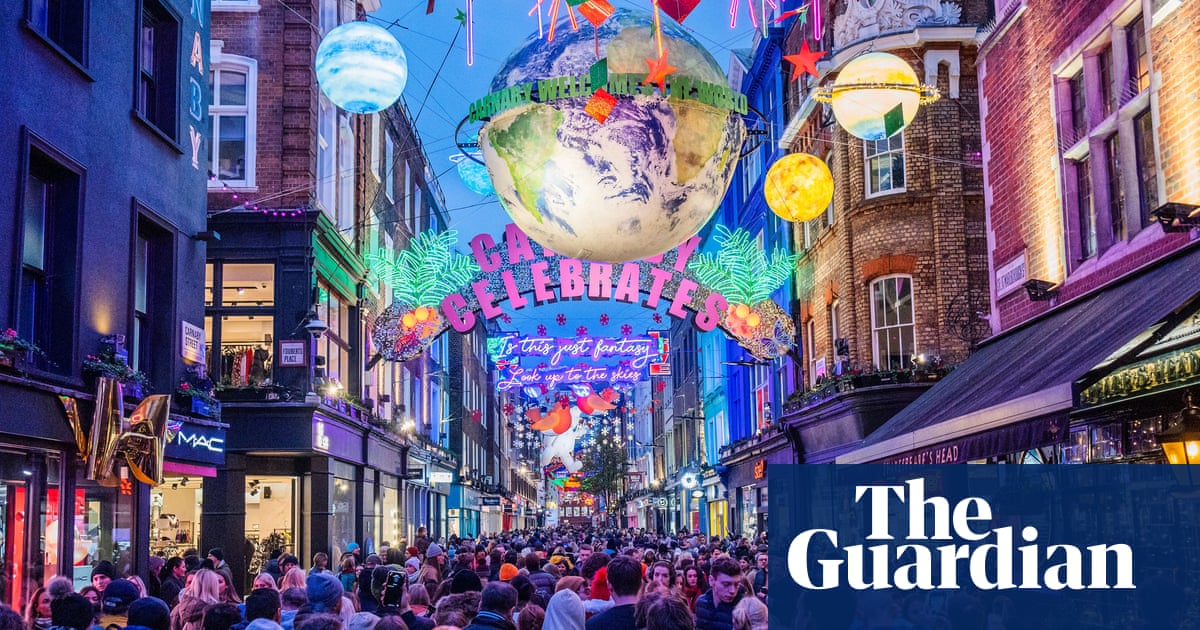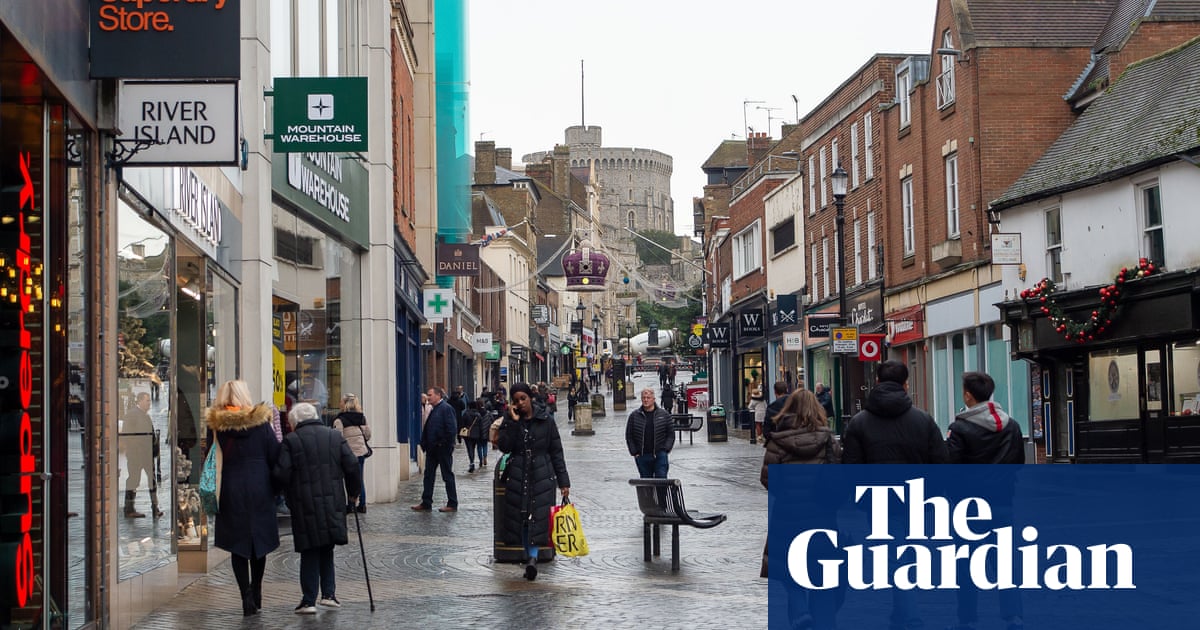
British consumers cut back on spending last month, according to official figures, amid growing fears the retail industry has plunged into a recession before the key festive shopping season.
Figures from the Office for National Statistics showed retail sales volumes in Great Britain fell by 0.9% in September compared with a month earlier, as mild weather limited sales of colder weather gear and consumers cut back on non-essential spending.
Sounding the alarm over the outlook for the British economy as inflation remains stubbornly high, the figure wiped out retail sales growth of 0.4% in August and was worse than City economists’ forecasts for a 0.2% monthly decline.
“The sector may already be back in recession,” said Alex Kerr, an assistant economist at Capital Economics. “This doesn’t bode well for retail sales growth in the run-up to Christmas.”
Industry leaders expect consumers to buy fewer and cheaper presents before the festive season as high household energy bills – with less government assistance for many this year – and rising grocery prices continue to put pressure on budgets.
Andrew Bailey, the governor of the Bank of England, said on Friday he expected a “noticeable drop” in inflation over the coming months, helped by the reduction in the Ofgem energy price cap from October.
While suggesting that Rishi Sunak was still on track to meet his promise to halve inflation this year, Bailey told the Belfast Telegraph there was still “quite a way to go yet” before it fell back to the Bank’s 2% target. The figure unexpectedly remained unchanged at 6.7% in September, after economists had predicted a fall.
According to the latest snapshot for high street and online spending, clothing sales plunged by 1.6% in September from the previous month. Retailers reported that the unseasonably warm weather had hit sales of autumnwear, after the joint-warmest September since records began in 1884.
Department store and household goods sales fell by 1.6% and 2.3% respectively month on month as consumers cut back on big-ticket purchases, highlighting the pressure on households amid the cost of living crisis.
With households under pressure from higher prices and a sharp rise in borrowing costs after 14 consecutive Bank of England rate increases, retail sales are expected to remain subdued in the run-up to Christmas. Economists said the monthly drop in September meant that overall economic growth had probably flatlined or even fallen.
“While no one was expecting the month to be a bright spot for the high street, the full picture suggests a harsher-than-expected reining-in of discretionary spending,” said Sophie Lund-Yates, the lead equity analyst at Hargreaves Lansdown.
“This is a worse slide than expected and speaks to growing anxiety and the potential that we’re looking at a steeper consumer pullback than forecast as we head into the Christmas trading season.”
UK consumer confidence continues to tumble, with GfK registering the biggest monthly fall since 1994, excluding the coronavirus pandemic, this month as households grow more nervous about the prospects for their personal finances and the wider economy.
The latest gauge of consumer optimism from GfK dropped to a three-month low of -30 in October, down from September’s reading of -21.
“This sharp fall underlines that the cost of living crisis, and simply not having enough money to make ends meet, are still exerting acute pressure for many consumers,” said Joe Staton, the client strategy director at GfK.
There was a modest 0.2% rise in the volume of sales at food stores and supermarkets in September, although this was down on the 1.4% monthly increase reported in August.
Fuel sales volumes rose 0.8% in September, as rail strikes prompted more people to travel by road despite a surge in the cost of petrol and diesel over recent months, in a return to growth after a drop of 1% in August.
Jacqui Baker, the head of retail at the accountancy firm RSM UK, said that price-sensitive consumers were likely to have tightened their spending before the festive shopping season to hold out for Black Friday deals.
“Consumer confidence fell sharply in October, with remortgaging at the forefront of many consumers’ minds. This will continue to weigh heavily on consumer spending, meaning retailers will have to work hard to come out on top in this year’s Golden Quarter,” she said.
Britain’s stock market saw further losses on Friday, with the FTSE 100 share index falling 1.3% to finish at its lowest closing level since late August.












